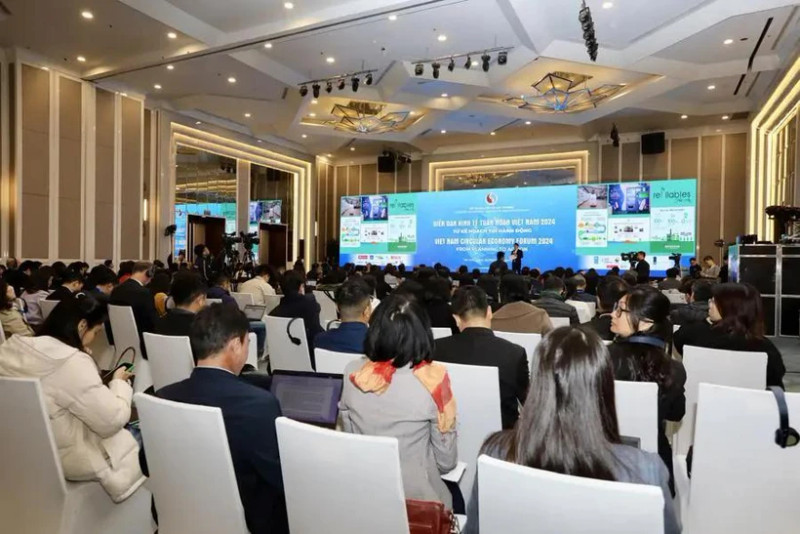Khalidi emphasised that to accelerate the transition to a circular economy, Vietnam should focus on four main priorities, including integrating eco-design and circular design into policies, incorporating measurable targets into the circular economy roadmap, fostering innovation, and improving competitiveness.
Priority should be given to key sectors such as agriculture, electronics, plastics, textiles, and construction materials to help Vietnam meet international standards and create opportunities for sustainable growth, she said.
In his opening remarks, Deputy Minister of Natural Resources and Environment Tran Quy Kien said the ministry has coordinated with relevant ministries and ministerial-level agencies to draft a national action plan for circular economy development to submit to the Prime Minister for approval, incorporating feedback from ministries, sectors, local authorities, domestic and international experts, and support from international organisations.
Implementing a circular economy is an inter-sectoral task requiring the active engagement of all-level authorities, ministries, sectors, localities, organisations, and individuals, he said.
According to Kien, the State plays a facilitating role by providing resources such as funding, research, development and application, technology transfer, equipment production, and human resources training. Meanwhile, organisations and individuals serve as driving forces in this process, with businesses taking the lead in innovating and creating business models to establish a circular value chain.
Realising the national action plan to implement a circular economy will contribute to driving innovation, improving labour productivity, promoting good practices and green lifestyle, creating green jobs and developing new value chains in this field, he said, adding that the forum offers an opportunity for the MoNRE to engage with stakeholders to exchange ideas for connecting and promoting circular economy practices in Vietnam.
He expressed his hope that the Vietnamese business community will contribute to implementing circular economy initiatives, helping Vietnam realise its sustainable development goals by 2030.
The forum gathered representatives from the Ministry of Natural Resources and Environment, businesses, non-governmental organisations, universities, and research institutes, chief representatives of development partners, diplomats and experts.
Themed "Promoting circular economy in Vietnam: From plans to actions," the event includes a plenary session and three thematic workshops, providing a comprehensive overview of orientations, policies, mechanisms, and innovative solutions to promote the development of a circular economy in Vietnam; and highlighting the role of the private sector in this scheme.
Domestic and international partners engaged in discussions on the transition to a circular economy, and ways and strategies to promote its development in Vietnam, contributing to Vietnam's ambition to become a pioneer in ASEAN in establishing a comprehensive institutional and legal framework for the circular economy.
















